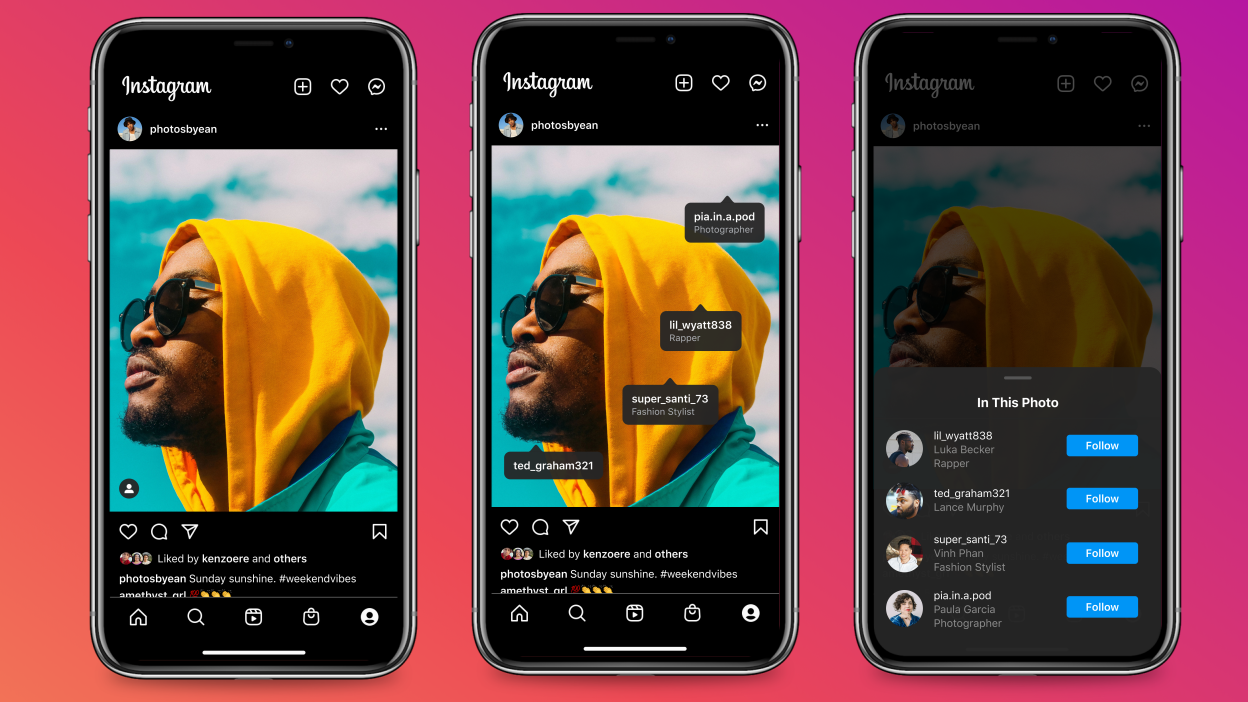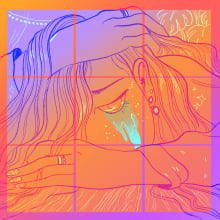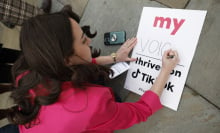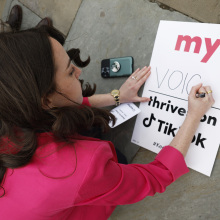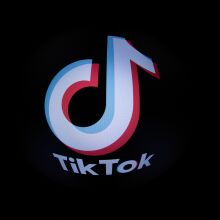Instagram wants to make it easier to credit Black creators(opens in a new tab), and its new enhanced tags(opens in a new tab) for posts might be a step in the right direction.
The enhanced tagging feature lets Instagram users show additional information on "People Tags" on their posts. Beyond just a profile's username, the tags will highlight the creators' self-designated profile category (titles are chosen from Instagram's list of categories, like "rapper" or "fashion stylist" or "photographer") as well as their account's full name or title. The information is shown when users tap on posts to see tags and in the expanded "In This Photo" screen.
"For many Black and underrepresented creators, crediting is an entryway to building a sustainable career as a creator, while combating cultural appropriation and ensuring the world knows who is driving culture," Instagram explained in a press release on Monday.
The feature was created by three women of color — Meta data analysts Alexandra Zaoui and Alexis Michelle Adjei, and Meta engineer Cameryn Boyd— who saw the need for a better crediting system on Instagram posts. Boyd and Adjei said in an interview with NBC that Black creators were specifically in mind when designing the new tags. "Now, you can just have this enhanced tag, and the idea there was because we know that Black creators’ content was already going viral and was being shared, but they weren’t getting that attribution," Boyd explained to NBC.
"Rather than just calling out the problem, we wanted to build a tangible, product-driven solution to encourage a culture of crediting which honors the etiquette that we saw already happening on Instagram with people tags," Zaoui said in a statement to Mashable.
Black creators and influencers are routinely overshadowed, or outrightly stolen from, as their content gains popularity. It limits their ability to profit(opens in a new tab) from their own content, as white creators often get paid more(opens in a new tab) than Black originators for the same content.
The issue of proper credit for Black creators isn't just limited to Instagram(opens in a new tab). TikTok trends are routinely co-opted by white creators with more followers, many of whom don't acknowledge the trends' origins in Black culture and creation. Black TikTok creators even went "on strike" last year, refusing to create new dance trends to popular songs like Megan Thee Stallion's "Thot Shit," to prove the point that Black dancers create many viral trends and should be recognized for it. It's now common practice to add a "dance credit" tag in the caption of any dancing video.
It's been a problem over on Twitter for years(opens in a new tab), as well, with places like media publications stealing jokes from Black users, miscrediting trends(opens in a new tab), or screenshotting their tweets to be re-used across the internet.
Instagram hopes that by adding more direct, informational tags to posts, Black creators will stay connected to the viral content they create and which is later shared.
"It’s really critical, as we’re moving towards this new age where creators are so important and creators are really able to use their craft to support themselves in their lives, that Black creators are getting the same opportunity, as they’re already creating the content," Boyd told NBC.
How to add the new enhanced tags
Enhanced tag information only appears for professional (business and creator) Instagram accounts. If you're a creator and want to make sure your content is appropriately tagged, make sure to switch your Instagram profile to a Professional Account(opens in a new tab).
To add enhanced tags simply make a new post, add your edits, and then select "Tag People" on the caption screen. Here you can add tags to your post. Select Add Tag, find the creator's profile, and make sure to select "Show Profile Category" on the tag.
Let's make sure we all give credit where credit is due.
UPDATE: Mar. 8, 2022, 6:15 p.m. EST A previous version of this article did not include that Alexandra Zaoui also helped develop the Instagram enhanced tags feature. It has been corrected to state that and now includes a comment from Zaoui.
